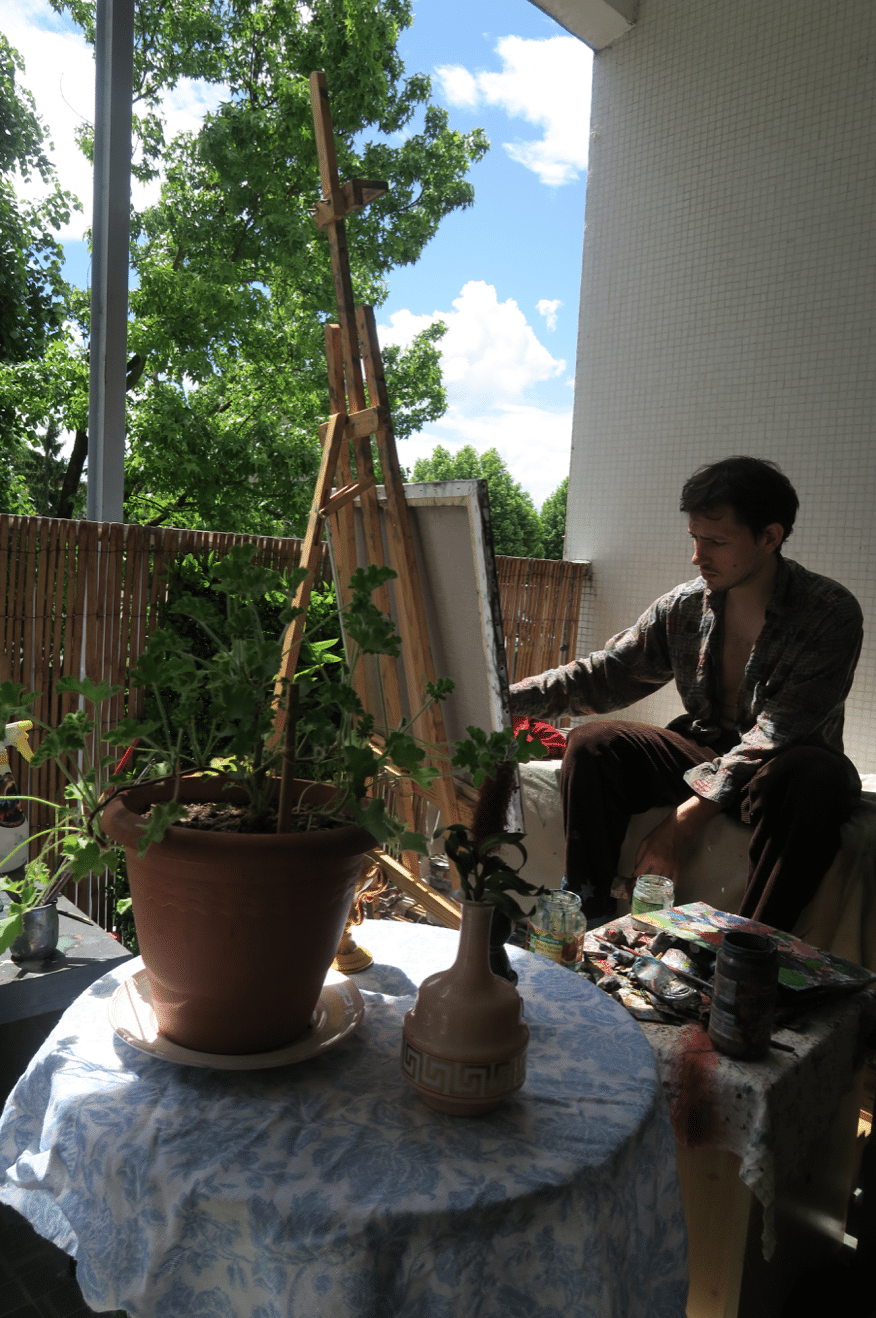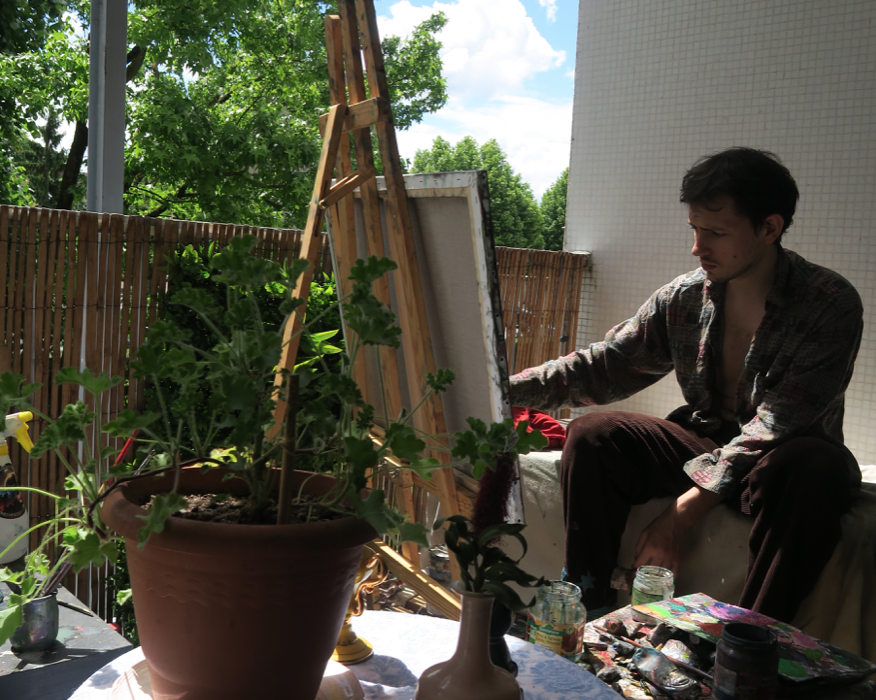Igor Moritz in conversation with Sarah Forman

The #LockdownEditions are a Delphian-run initiative to support some of our favourite contemporary artists during these difficult and unprecedented times. Throughout the remainder of the quarantine measures, we will be releasing a new print each week, with all of the profits going directly to the artists themselves. This week, we’re excited to feature our fifth artist, Igor Moritz, to talk about being baseless, shifting radii and fake plants.
Sarah Forman: Tell us a bit about yourself and your practice.
Igor Moritz: I was born in 1996 in Lublin, post-communist Poland. When I was very young I migrated with my family to London, only to return back to Poland as a teenager, where I attended an art high school. My paintings are mainly focused on inner-life, and I tend to paint the people closest to me, usually portrayed in domestic landscapes but also somewhere else – deep insides their heads.
S: Where are you based and how has the current global health crisis affected your day-to-day?
IM: My plan has been to move to London since finishing university last summer, but new residencies and shows kept on popping up in my calendar and I didn’t want to commit to high studio and flat rates only to move shortly after. I guess you could say I’m not really based anywhere. The pandemic had a hand in this, as rumours of the potential lockdown reached me a few hours before my most recent flight, so I decided to stay with my girlfriend in Grenoble in the French Alps throughout the course of the quarantine. In France, the lockdown was enforced completely, strictly and quickly, which made our lives utterly house bound. We spend the days on the balcony, where I paint. We have a nice routine with her flat mates that includes a daily exercise and cooking calendar.
S: In what ways have you changed how you work and/or what you’re working on?
IM: The biggest change to my work has been the shift to painting on the balcony. As a result, I’m only able to work with sunlight, which has made my paintings a lot lighter. Additionally, and honestly ironically in the face of the lockdown situation, it’s meant that there are more integrated elements of the outdoors in my work.
S: How have you seen your community affected by the current COVID-19 crisis? Inside and outside the art world?
IM: I think the pandemic has affected the community in a variety of ways. I think it has made my close circles closer and pushed the outer ones a bit further out. I personally don’t see the sense of unity and camaraderie others have been talking about. When I go to the shop everyone is a bit on edge; myself included. Regarding the art world, well despite the huge amount of shows that have been pushed, which must have really affected the galleries and artists, there are a lot more smaller works on paper being made, which I personally love to see.
S: Can you talk to us a little bit about this print and why you chose it?
IM: The print I’m releasing as a part of the Lockdown editions is a still life called “Wiosna, 2020”. The image is of two fake plants and a bowl of fruit sitting in front of a colour field background. I think despite the very sweet vivid colours there is something slightly unsettling about this work. I think it’s worth mentioning that “wiosna” means spring in Polish.
SF: Do you feel there’s a certain pressure to respond to what’s going on in the world right now? If so, what does that look like?
IM: I don’t like my paintings to comment on global events in any direct way, so I personally don’t feel the pressure to do so. However, there might be motifs that appear in my quarantine-made paintings, put in there for formal reasons, that may actually comment on this situation better than I possibly could.
S: Have you seen initiatives taking place that really scare you? Excite you?
IM: I don’t know if you can call the fact that the Polish presidential elections will be conducted via mail, with no anonymity, an initiative, but that’s scary to say it politely. As for initiatives that are exciting, I think the Artists Support Pledge (https://www.instagram.com/artistsupportpledge/) is a great idea. However, I haven’t actually taken part in it, because I don’t want to be going to the post office too much nowadays.

